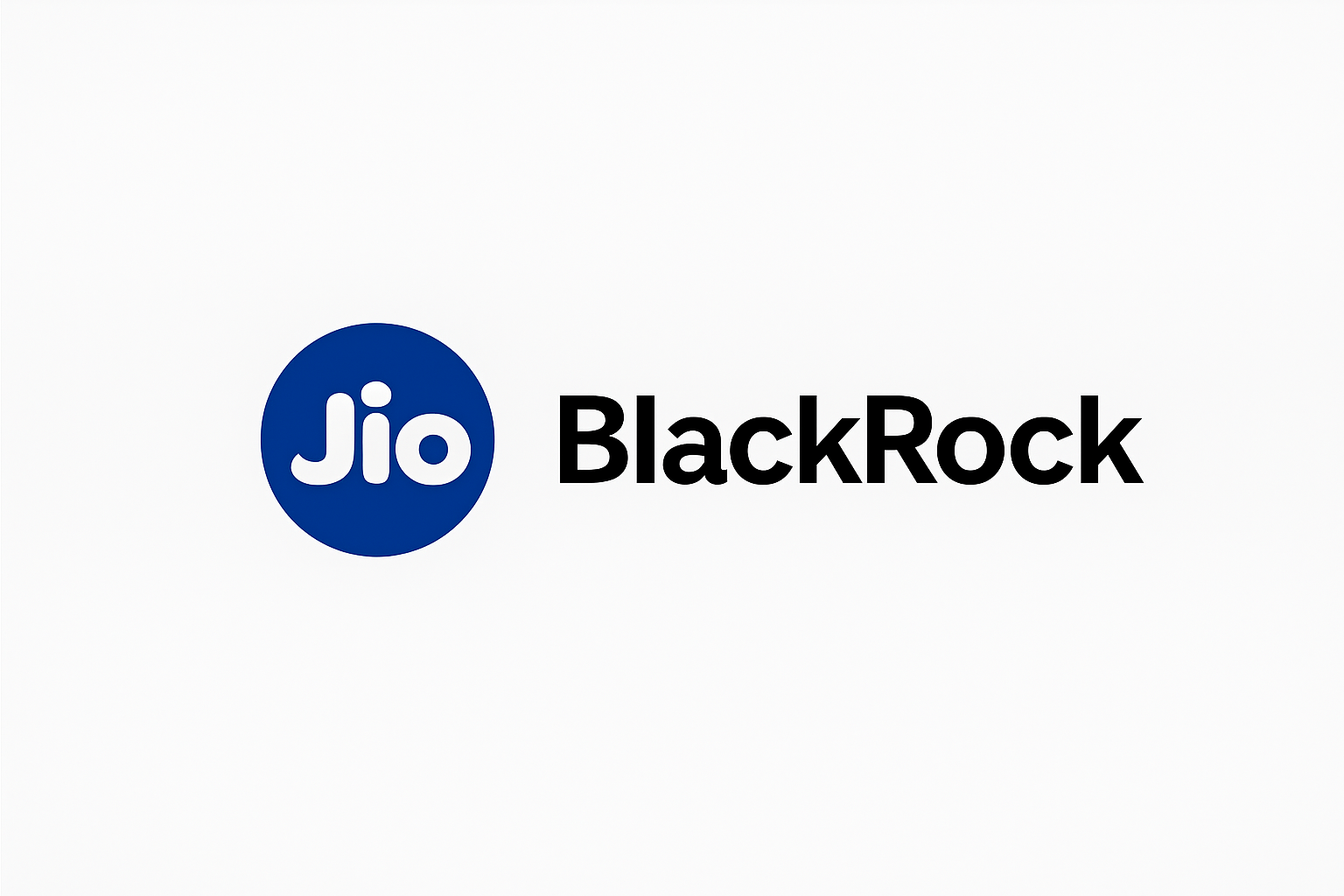Introduction
In a landmark move within India’s financial and asset management ecosystem, Jio BlackRock, the joint venture between Reliance Industries and global investment giant BlackRock, has received the Securities and Exchange Board of India (SEBI) approval to launch four passive index schemes. This development signals the growing momentum of passive investing in India and highlights the aggressive push by Jio BlackRock to capture a significant share of the Indian mutual fund industry.
As the popularity of low-cost passive funds rises among Indian investors, the SEBI nod to Jio BlackRock is poised to disrupt the existing market dynamics. With Reliance’s robust digital infrastructure and BlackRock’s decades-long expertise in global asset management, the venture is set to offer Indian investors world-class investment solutions.
This article delves into the details of Jio BlackRock’s recent approval, its strategic implications, the nature of passive index funds, and how this move aligns with broader trends in the Indian investment space.
What Are Passive Index Schemes?
Passive index schemes are mutual funds or exchange-traded funds (ETFs) that aim to replicate the performance of a specific market index such as the Nifty 50, Sensex, or Nifty Next 50. Unlike actively managed funds, where fund managers make stock selection decisions, passive funds follow a pre-defined strategy of mirroring the index, resulting in lower expense ratios and reduced fund management risk.
They are popular among cost-conscious investors who believe in market efficiency and long-term growth aligned with the broader economy.
Overview of Jio BlackRock’s Joint Venture
Announced in July 2023, the Jio BlackRock partnership was a significant development in India’s financial sector. The partnership brings together:
- Reliance Industries: One of India’s largest conglomerates with deep-rooted reach in digital platforms, telecom, and retail.
- BlackRock Inc.: The world’s largest asset management firm with over $10 trillion in AUM (Assets Under Management), known for its leadership in ETFs through its iShares range.
The goal of the partnership is to offer technology-driven investment solutions that are scalable, affordable, and efficient, targeting millennials and first-time investors in India.
The SEBI Approval: What It Covers
According to reports and filings with SEBI, Jio BlackRock has received approval to launch four index-based mutual fund schemes, which are:
- Jio BlackRock Nifty 50 ETF
- Jio BlackRock Nifty Next 50 ETF
- Jio BlackRock Sensex ETF
- Jio BlackRock Nifty Bank ETF
These schemes will be passively managed and aim to replicate the performance of their respective indices. The approval is part of the process of securing permissions under SEBI’s Mutual Fund Regulations, necessary for launching any retail investment product in India.
Strategic Importance of These ETFs
1. Capturing the Passive Investment Trend
India is witnessing a surge in passive investing, with investors increasingly favoring low-cost ETFs and index funds over high-fee active funds that often fail to outperform the benchmarks. These four ETFs are poised to appeal to:
- Young retail investors
- Institutional players
- Long-term HNIs (High Net-worth Individuals)
2. Disrupting the Low-Cost Investment Space
With its tech-driven distribution through Jio platforms (including MyJio and Jio Financial Services), Jio BlackRock has the potential to democratize investing by:
- Reducing onboarding friction
- Offering zero-commission platforms
- Providing mobile-first investing tools
3. Enhanced Liquidity and Market Participation
Launching ETFs that track indices like Nifty 50 and Nifty Bank brings more retail money into large-cap stocks, increasing liquidity and market depth. It also helps retail investors gain diversified exposure with minimal costs.
Benefits for Investors
Low-Cost Investment
With minimal fund management fees and no active trading, index funds and ETFs are cost-effective for long-term wealth building.
Transparency
Since these funds mirror known indices, investors can easily track performance and understand the portfolio.
Diversification
Each index comprises multiple companies across sectors, offering in-built risk reduction.
Accessibility
Jio’s digital infrastructure can help make these schemes accessible to rural and semi-urban India, bringing investing to the masses.
Industry Reactions
Growing Competition in Passive Space
The entry of Jio BlackRock into passive funds is seen as a challenge to existing fund houses like:
- Nippon India Mutual Fund
- HDFC AMC
- SBI Mutual Fund
- ICICI Prudential AMC
All of which currently dominate the Indian ETF and index fund landscape.
Expert Opinions
According to industry experts, Jio BlackRock’s entry could drastically reduce costs and increase innovation:
“Reliance’s reach and BlackRock’s investment pedigree could help deepen India’s mutual fund penetration,” said a leading financial advisor.
Mutual Fund Market in India: The Bigger Picture
The Indian mutual fund industry has been growing at a CAGR of 17% over the past 10 years, with AUM touching over ₹58 lakh crore as of mid-2025. However, only about 3-4% of Indians invest in mutual funds, compared to over 50% in developed economies.
Passive funds currently account for just around 17-18% of the total mutual fund AUM in India. In contrast, they account for over 50% in the U.S. and Europe. There is massive scope for growth, especially as:
- Investors demand cost efficiency
- SEBI regulations become more investor-friendly
- Platforms like UPI, digital KYC, and mobile apps make onboarding seamless
Why This Matters for Retail Investors
With the democratization of investments through platforms like Jio Financial Services, passive index schemes will be accessible to:
- First-time investors
- Rural investors with smartphones
- Gig economy workers
The move aligns with the broader vision of “financial inclusion”, making investing as simple as using a smartphone.
Possible Future Developments
Jio BlackRock may further diversify its offerings by launching:
- Thematic ETFs (e.g., ESG, EV, Digital Economy)
- Debt Index Funds
- International Index ETFs tracking US/Global indices
- Smart-beta funds that blend passive with rules-based investing
Regulatory Backing
SEBI has been instrumental in:
- Encouraging transparency and low-cost investing
- Tightening performance disclosure norms for active funds
- Enabling instant fund switching and real-time NAVs for ETFs
This regulatory support bodes well for newer players like Jio BlackRock entering the market.
Comparison With Global Markets
In the US and Europe, BlackRock’s iShares ETFs dominate the passive investing space. The company now aims to replicate its global success in India by leveraging Jio’s network and reach.
Here’s a comparison snapshot:
| Feature | US Market | Indian Market |
|---|---|---|
| ETF AUM % | 55% of total | ~18% of total |
| Avg. Fee | 0.1% | 0.2%-0.4% |
| Retail Participation | >50% | <5% |
| Distribution | Online & Advisors | Mostly offline (but growing online) |
Jio BlackRock’s entry may bring US-style digital and affordable investing culture to Indian shores.
Potential Challenges
While the SEBI approval is a major step forward, the joint venture faces several challenges:
- Building Trust: Competing with legacy players that have long-established track records.
- Investor Education: Many retail investors still prefer traditional instruments like FDs and gold.
- Market Volatility: Passive funds mirror the market; downturns can affect investor sentiment.
- Operational Setup: Building a robust back-end fund management and compliance system takes time.
Conclusion
The SEBI approval for Jio BlackRock to launch four passive index schemes marks the beginning of a new era in Indian asset management. The move aligns with rising investor demand for low-cost, tech-driven, and transparent financial products.
By combining Jio’s digital strength and BlackRock’s global investment expertise, the venture is uniquely positioned to reshape the Indian mutual fund landscape. As the schemes roll out in the coming months, retail and institutional investors alike will be watching closely to see how Jio BlackRock navigates this high-potential space.



